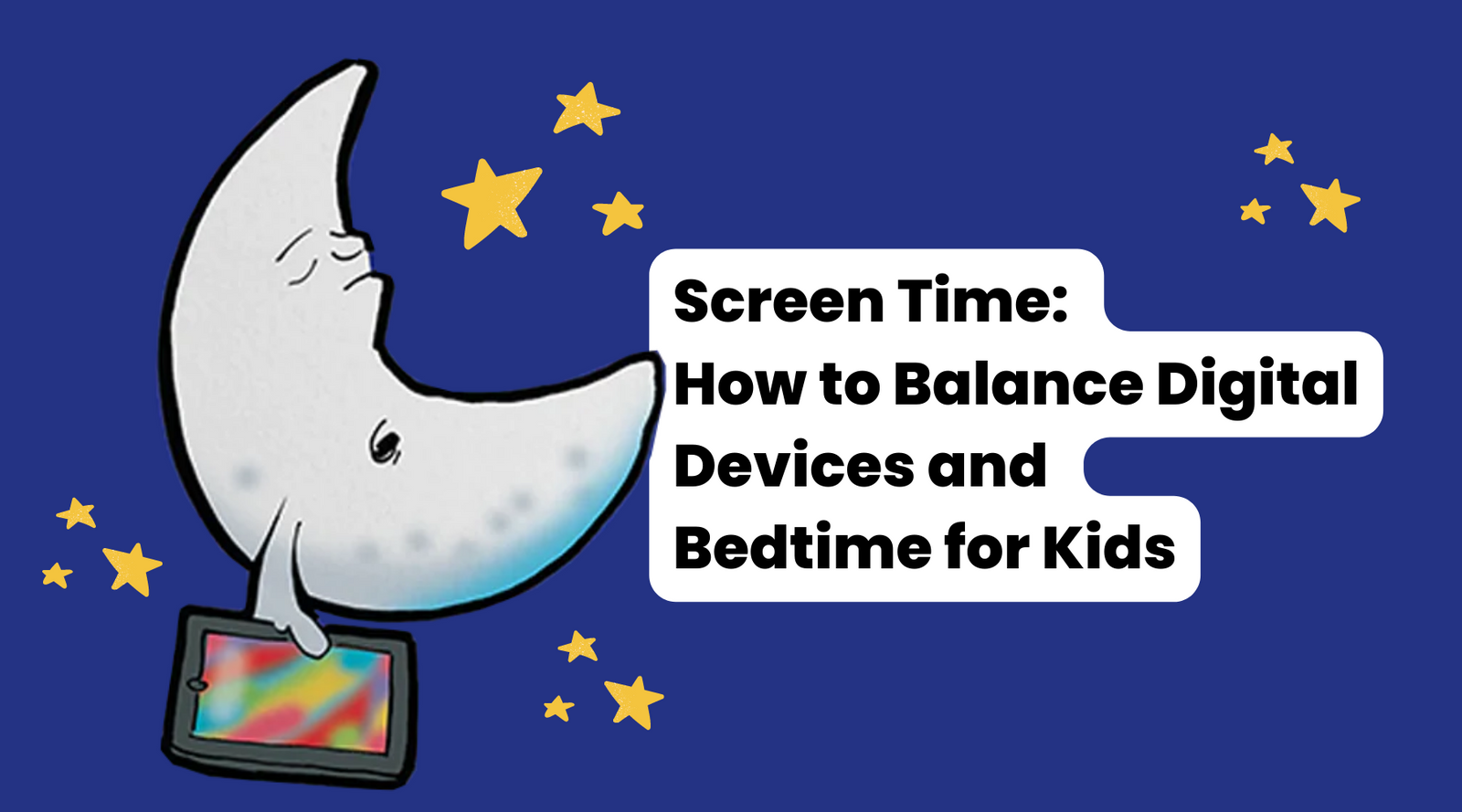Screen Time: How to Balance Digital Devices and Bedtime for Kids

The amount of time children spend in front of a screen, such as a television, computer, or smartphone, is referred to as screen time. Screen time can be educational and beneficial to children's social development, but research studies have revealed both positive and negative effects of screen time for children.
Key Points about Screen Time for Children
1) How Do Children Use Screens?
According to a Common Sense Media report, children aged 0 to 8 spend an average of 2 hours and 19 minutes per day on screens. Children aged 8 to 12 use screens for an average of 4 hours and 44 minutes per day, while teenagers use screens for an average of 7 hours and 22 minutes per day. Children use screens for a variety of activities such as watching videos, playing games, doing homework, and interacting with friends.
2) The Issues with Screens for Children:
Obesity, sleep problems, behavioural issues, and poor academic performance have all been linked to excessive screen time. Furthermore, children who spend a lot of time on screens may struggle with face-to-face communication and may find it difficult to form and maintain meaningful relationships with their peers.
3) Is Screen Time Harmful to Children?
There is conflicting research on the effects of screen time on children. Some studies have found that screen time can be harmful to children's development, while others have found that it can be beneficial in some ways. When determining how much screen time is appropriate for your child, it is critical to consider both the positive and negative effects of screen time.
Let us look at the positive and negative effects of screen time on children:
|
The Positive Effect |
Negative Consequences |
|
Educational |
Obesity |
|
Social |
Sleep Issues |
|
Exposure to a Wide Range of Content |
Behavioral Issues |
|
Enhances Coordination |
Academic Underperformance
|
How Much Screen Time Is Healthy?
The American Academy of Pediatrics recommends that children aged 2 to 5 years old have no more than one hour of screen time per day, and that children aged 6 and older have consistent time limits on screen time. Furthermore, children should engage in at least one hour of physical activity per day, and screens should not interfere with sleep.
Screen Time Recommendations for Children Based on Age
|
Age Group |
Screen Time Recommendations |
|
0 to 18 months |
Except for video chatting with family and friends, no screen time. |
|
18 to 24 months |
Screen time is limited to high-quality programming that is co-viewed with a parent or carer. |
|
2-5 years |
No more than one hour of high-quality programming per day, co-watched with a parent or carer |
|
6 years and up |
Consistent time limits on screen time, with a balance of physical activity and other activities |
How to Get Rid of How to Get Rid of Kids Screen Time
If you are concerned about your child's screen time, you can take several steps to reduce it:
Establish screen-time guidelines: Establish clear guidelines for when and how screens can be used. Ascertain that your child understands the rules and the consequences of breaking them.
Get your child moving, especially: Encourage outdoor play and physical activity. This can help your child develop important motor skills while also decreasing the amount of time he or she spends in front of a screen.
Ensure adequate sleep: Check to see if your child is getting enough sleep. Screening with a can of sleep:
Discuss online risks and strategies for dealing with them: Teach your child about the dangers of the internet, such as cyberbullying and online predators. Discuss strategies for staying safe online, such as staying safe online, such as protecting personal information and reporting inappropriate behaviour.
Limit screen time before bed: Screens emit blue light, which can disrupt sleep. To help your child get a good night's sleep, limit screen time for at least one hour before bedtime.
Instill appropriate behaviour: Discuss with your child appropriate online behaviour, such as being kind to others and not sharing inappropriate content.
Some Screen Time Facts for Children
Children's mental health can suffer as a result of screen time, including increased anxiety and depression.
The quantity is less important than the quality of screen time. Educational shows, for example, can have a positive impact on children's development.
Parents who model healthy screen habits for their children can help them develop healthy habits as well.
Children who spend more time outside and engaged in physical activity have better mental and physical health than those who spend more time in front of screens.
Book about Screen Time for Kids
The Class That Can: Sleep & Screen Time is a fun and educational book that teaches kids the importance of balancing screen time with other activities. The book features colourful illustrations, a relatable story that captures children's attention, and a relatable story that captures children's attention. It gives parents practical advice on how to manage their children's screen time as well as strategies for promoting healthy habits.
Finally, screen time can have both positive and negative effects on the development of children. It is critical for parents to monitor their children's screen time and to establish clear rules and boundaries. Parents can help their children develop healthy habits that will benefit them throughout their lives by encouraging a balance of screen time, physical activity, socialisation, and other activities.





Leave a comment